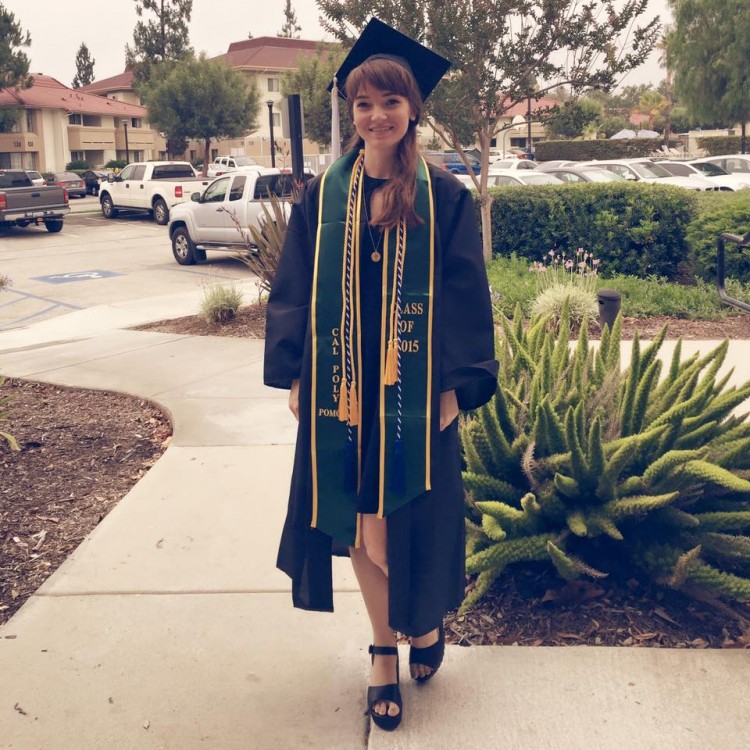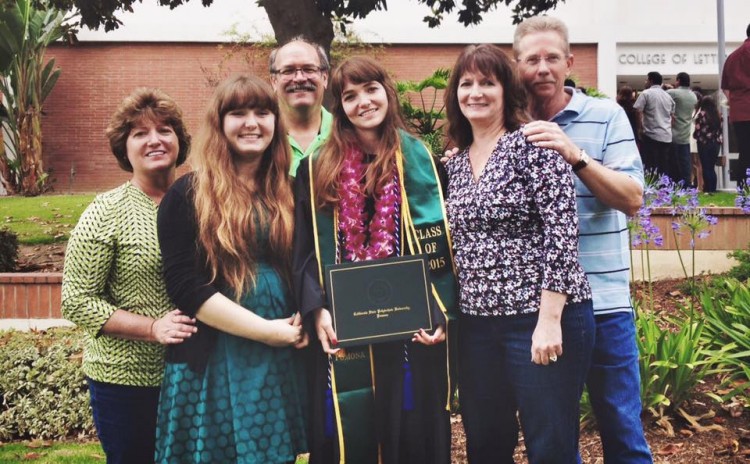When I first started getting panic attacks at 20 years old, I did plenty of googling. I read about the symptoms, causes, treatments and complications. This is how I learned about agoraphobia, a common complication of panic disorder, in which sufferers are afraid of many everyday places and spaces. I learned many people with agoraphobia become housebound because they’re too afraid to leave their home. I thought it sounded strange and truly did not think I could ever feel that way.
Ten months later, my world had shrunk to the 980-square-feet of my university apartment.
As soon as I began experiencing panic attacks, I feared them. I lived in fear of the next one and did not know how to handle them when they hit; yet I did not seek treatment, thinking they would go away someday. I lived every day on edge, with a tension I had never felt before. Slowly, I began to feel anxious in normal places like movie theaters, classrooms and restaurants. My mind would be obsessively asking, “What if I have a panic attack? What if I can’t leave? What if I die from the attack? What if I embarrass myself or who I’m with? I am trapped here!” I was physically there, but mentally I was worlds away. These thoughts did not subside, but grew louder and took over during activities I used to love.
Having experienced three attacks at my work place, I became scared to go to work; I called out for as long as I could. Eventually, I quit; I felt defeated. After having an attack in my car, I became fearful of driving. It was my final quarter of college and I was skipping as many classes as possible because I was too afraid of being far from my safe space — my university apartment bedroom. Many days, I’d walk to class, stop, turn around, turn back around and keep walking to my destination. My inner dialogue consisted of me arguing with an anxious self, telling me to just go back home where I am safe and comfortable.
Graduation was rapidly approaching. When I should have been rejoicing, I was wishing I could drop out. I dreaded my graduation. I didn’t know how I could handle sitting there with my anxiety, walking on stage to receive my diploma, celebrating with my family and friends. My parents realized something was going terribly wrong when I cried to them that I should quit and finish when I was better. They knew I was incredibly close to finishing and that I could pull through, even though I had lost all confidence in myself. They began to urge me to see a therapist they had found, but I stubbornly didn’t because I didn’t know how I could handle driving to her office. They offered to take me, but I refused, still terrified.
Graduation day came. Running on an hour or two of sleep, I pulled myself together. I knew my family was excited to see me, so I had to power through whatever may lie ahead. My arms were numb the entire time and I had to maintain rigid control over my thoughts and breathing. My hands were balled into fists as I dug my nails into my tingling palms. My bottle of water and cell phone acted as false security blankets that somehow comforted me. As I sat at the ceremony, I kept imagining myself fainting just as I received my diploma — a fear that would continue to limit my life. Not surprisingly, as my name was announced and I confidently shook various hands, I did not faint. I forced myself to smile the entire day in hopes of tricking my anxious brain… and surprisingly, it somehow worked.

The day I was dreading was a success and one of the proudest days of my life. Despite experiencing uncomfortable anxiety the entire day, I had successfully faced a huge fear. Graduating from college often represents overcoming various challenges. Many college students have so many things going on in their lives aside from academics. There are young parents, full-time workers, immigrants and students with disabilities. As a student with a disability, receiving my diploma was less about now being qualified for certain jobs and more about defying my self-imposed limitations.
My life was falling apart when it was nearly beginning. Since graduation, my struggle with anxiety disorders has gotten more difficult. But I am proud to say I finally found a therapist who has helped me regain my confidence in my ability to cope. Treating agoraphobia is challenging and not what I expected to be doing as a new graduate. However, I am not only hopeful, but grateful. Learning to live with panic disorder and agoraphobia has humbled me, blessed me with empathy and introduced me to hundreds of amazing people through support groups. I am currently housebound, but every day I take steps to increase my little world by spending time outside, getting comfortable in my car and, most importantly, staying positive.
If you are experiencing panic attacks, know that you’re not alone and that it’s OK (and good!) to talk about them, especially with someone who can help you, like a doctor or therapist. Your life may feel limited and, even, forever changed, but you will regain peace of mind, joy and freedom. Know it’s OK to take time off from studies when you’re ill, but also know we are often more capable than we think. I was 98 percent certain I couldn’t finish my final quarter of college, yet somehow, with the encouragement and support of family, friends and professors, I pulled through.
If you are afraid and doubting your abilities today, recognize the lies and replace them with the truths — you are stronger than you think and will overcome; it might take time, but you’re on your way.

The Mighty is asking the following: Describe a moment you were met with extreme negativity or adversity related to your disability and/or disease (or a loved one’s) and why you were proud of your response — or how you wish you could’ve responded. If you’d like to participate, please send a blog post to community@themighty.com. Please include a photo for the piece, a photo of yourself and 1-2 sentence bio. Check out our Submit a Story page for more about our submission guidelines.
